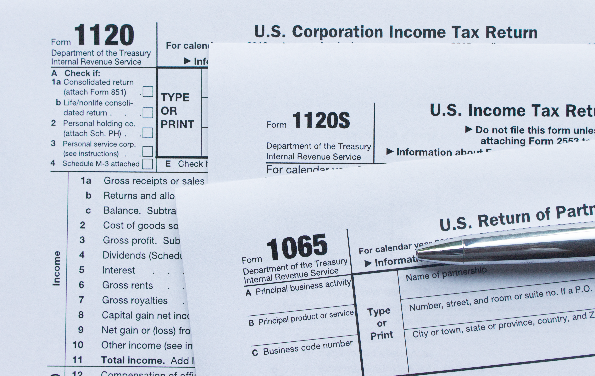Choosing the right business structure is one of the most important decisions new business owners must make. If you initially formed a C Corp, you may wonder whether converting to an S Corp or Partnership would offer tax benefits or operational advantages. Before making any changes, it's crucial to understand the tax implications and legal responsibilities tied to each structure.
How C Corps Are Taxed
For tax purposes, C Corps are treated as separate legal entities. This means the company files tax returns and pays taxes at corporate tax rates. After offsetting income with applicable credits, deductions, and losses, the company’s shareholders are paid dividends. These dividends are taxed again at each shareholder’s individual income tax rate, which leads to the phenomenon known as “double taxation,” where income is taxed at both the corporate and individual levels.
How Partnerships and S Corps Are Taxed
In contrast to C Corps, Partnerships and S Corps are considered “pass-through entities,” meaning income is not taxed at the corporate level. Both structures are required to file informational tax returns with the IRS and state and local tax authorities. However, individual shareholders (S Corps) or partners (Partnerships) are taxed on their share of the business’s earnings. The income is reported on the individual owner’s tax returns, avoiding the issue of double taxation that affects C Corps.
Potential Tax Benefits of Converting to an S Corp or Partnership
The primary advantage of converting to an S Corp or Partnership is the avoidance of double taxation. Depending on the business’s earnings and the tax brackets of the shareholders or partners, this can result in significant tax savings. Additionally, S Corps can further save on taxes by distributing earnings as dividends, which are not subject to payroll taxes. However, the IRS requires that shareholder-employees receive a “reasonable salary” subject to payroll taxes, and underpayment could result in recharacterization of dividends as salary and back taxes.
Partnerships do not pay payroll taxes, but partners are considered self-employed and must pay self-employment taxes on their earnings.
Potential Drawbacks of Converting to an S Corp or Partnership
There are potential drawbacks when converting from a C Corp to an S Corp or Partnership. One concern for S Corps is the tax on “built-in gains.” This occurs when assets like real estate, originally held by the C Corp, are sold at a profit after conversion. To avoid this tax, assets must typically be held for at least five years after conversion before they are sold or distributed.
Another challenge is that S Corps cannot pass C Corp operating losses to shareholders, and inventory inherited from the C Corp may be taxed based on the accounting method chosen.
If your business has significant passive investment income (rents, royalties, interest, etc.), S Corps may face an additional tax if passive income exceeds 25% of gross income. Failing this test for three consecutive years could cause your business to lose its S Corp status. Additionally, partners in general Partnerships are subject to self-employment taxes, while corporate shareholders typically are not.
Need Help? Let Relevant Law Assist You with Your Business Structure
Changing your business structure can have significant tax and operational impacts. Contact Relevant Law for expert guidance in evaluating the best structure for your company’s needs and goals.
Disclaimer: This article is for educational and informational purposes only. It does not constitute legal advice or establish an attorney-client relationship. For specific legal guidance tailored to your situation, contact us to consult with one of our attorneys.




